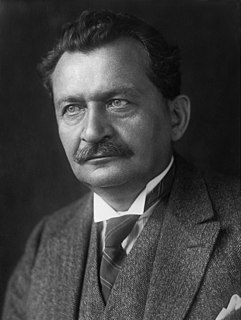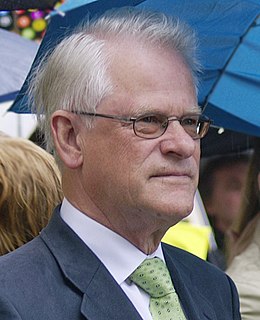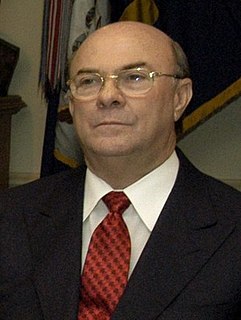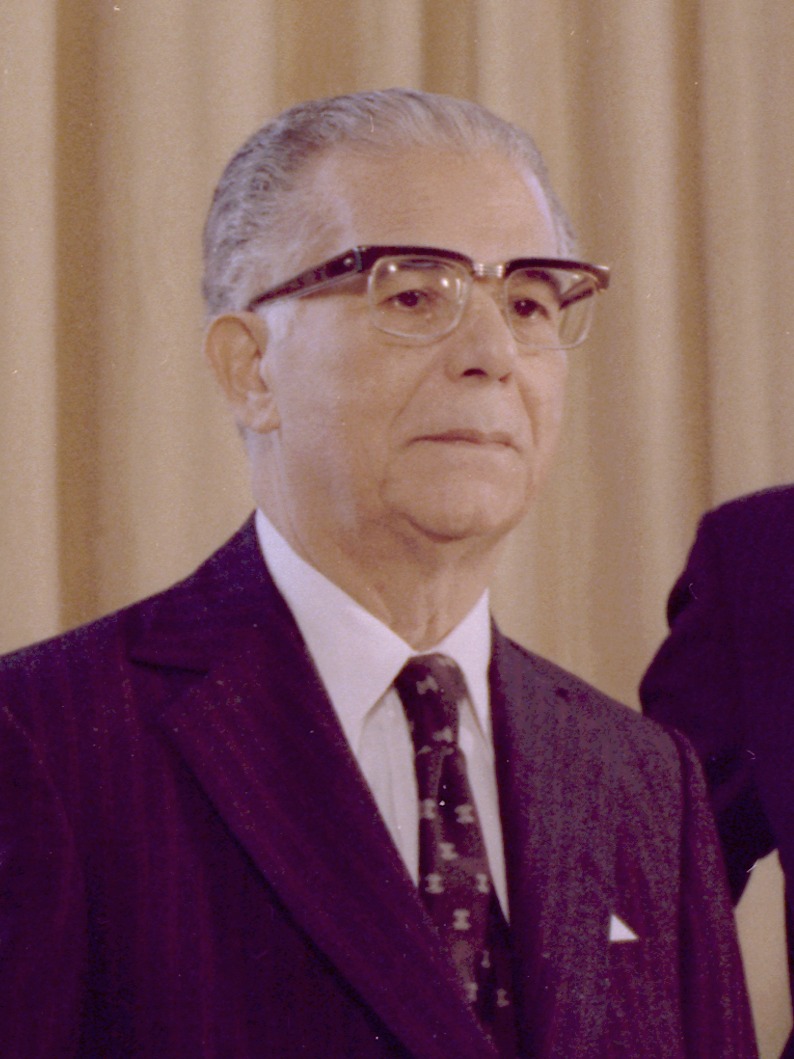
The Dominican Republic is a representative democracy, where the President of the Dominican Republic functions as both the head of the government and head of the multi-party system. Executive power is exercised by the government. Legislative power is vested in the bicameral National Congress. The Judiciary is independent of the executive and the legislature.

Presidential elections were held in the Dominican Republic on 16 May 2004. The result was a victory for former president Leonel Fernández, who defeated incumbent Hipólito Mejía. Voter turnout was 72.8%.

General elections were held in the Netherlands on 5 July 1922. They were the first elections held under universal suffrage, which became reality after the acceptance of a proposal by Henri Marchant in 1919 that gave women full voting rights. Almost all major parties had a woman elected. The number of female representatives increased from one to seven. Only the Anti-Revolutionary Party principally excluded women from the House of Representatives. Another amendment to the electoral law increased the electoral threshold from 0.5% to 0.75%, after six parties had won seats with less than 0.75% of the vote in the previous elections.
José Francisco Peña Gómez was a politician from the Dominican Republic. He was the leader of the Dominican Revolutionary Party (PRD), a three-time candidate for president of the Dominican Republic and former Mayor of Santo Domingo. He is considered, along with Joaquín Balaguer and Juan Bosch, as one of the most prominent Dominican political figures of the 20th century. His widow Peggy Cabral is currently one of the two co-Presidents of the PRD.

Presidential elections were held in Chile on 22 October 1925. They were the first direct elections in the country's history and the first to be held under the new 1925 constitution. The result was a victory for Emiliano Figueroa, who received 71% of the vote.

Federal elections were held in Germany on 14 September 1930. Despite losing ten seats, the Social Democratic Party of Germany (SPD) remained the largest party in the Reichstag, winning 143 of the 577 seats, while the Nazi Party (NSDAP) dramatically increased its number of seats from 12 to 107. The Communists also increased their parliamentary representation, gaining 23 seats and becoming the third-largest party in the Reichstag.

General elections were held in Sweden on 18 September 1994. The Swedish Social Democratic Party remained the largest party in the Riksdag, winning 161 of the 349 seats. Led by Ingvar Carlsson, the party returned to power and formed a minority government after the election. The Greens also returned to the Riksdag after a three-year absence.

Parliamentary elections were held in Hungary on 10 May 1998, with a second round of voting in 175 of the 176 single member constituencies on 24 May.
The People's Democratic Party is a minor political party in the Dominican Republic. It first contested national elections in 1974, when it provided the main opposition to the ruling Reformist Party due to the Dominican Revolutionary Party not contesting the elections. Its candidate, Luis Homero Lajara Burgos, received 15% of the vote in the presidential election, whilst the party won three seats in the House of Representatives. In 1978 many of the opposition parties returned to the electoral scene. Burgos received only 0.4% of the vote in the presidential election, whilst the party lost all three seats in the House of Representatives after a similar result in the Congressional elections.

General elections were held in Yugoslavia on 24 September 2000. In the presidential election, official results initially showed Vojislav Koštunica of the Democratic Opposition led incumbent Slobodan Milošević of the Socialist Party of Serbia in the first round of voting, but short of the 50.01 percent needed to avoid a runoff election. However, Koštunica claimed he was not only ahead, but had finished just a few thousand votes over the threshold to win a first-round victory. Spontaneous protests broke out in support of Koštunica, and Milošević was forced to resign on 7 October and concede the presidency to Koštunica. Revised totals were subsequently released showing Koštunica had indeed won a narrow first-round victory, with just over 50.2 percent of the vote.
Federal elections were held in Switzerland on 28 October 1951. Although the Social Democratic Party received the most votes, the Free Democratic Party remained the largest party in the National Council, winning 51 of the 196 seats.
Federal elections were held in Switzerland on 26 October 1947. Although the Social Democratic Party received the most votes, the Free Democratic Party emerged as the largest party in the National Council, winning 52 of the 194 seats.

Presidential elections were held in the Dominican Republic on 16 May 2000. Hipólito Mejía of the Dominican Revolutionary Party (PRD) won the election, defeating Danilo Medina of the Dominican Liberation Party (PLD) and former president Joaquín Balaguer of the Social Christian Reformist Party (PRSC). Voter turnout was 76.1%.

General elections were held in the Dominican Republic on 1 June 1966. Following the 1963 coup which toppled elected president Juan Bosch of the Dominican Revolutionary Party, supporters of his constitutional reforms were excluded from the elections, although Bosch himself contested them. The result was a victory for Joaquín Balaguer of the Reformist Party, whilst his party also won the Congressional elections. Voter turnout was 75.6%.

General elections were held in the Dominican Republic on 16 May 1970. The main opposition party, the Dominican Revolutionary Party, did not contest the election, leaving only the ruling Reformist Party and some right-wing and centre-right parties. Incumbent Joaquín Balaguer won the presidential election, whilst his Reformist Party won the Congressional elections. Voter turnout was 63.5%.

General elections were held in the Dominican Republic on 16 May 1974. The main opposition party, the Dominican Revolutionary Party, did not contest the election, leaving only the ruling Reformist Party and some right-wing and centre-right parties. Incumbent Joaquín Balaguer won the presidential election, whilst his Reformist Party won the Congressional elections in alliance with the National Youth Movement. Voter turnout was 71.7%.

General elections were held in the Dominican Republic on 16 May 1978. Following diplomatic pressure from American President Jimmy Carter, the elections were free and competitive and contested by all political parties, unlike the previous elections in the 1970s. Antonio Guzmán Fernández won the presidential election, whilst his Dominican Revolutionary Party won the Congressional elections. Voter turnout was 75.8%.

General elections were held in the Dominican Republic on 16 May 1986. Joaquín Balaguer of the Social Christian Reformist Party won the presidential election, whilst the PRSC-led alliance won the Congressional elections. Voter turnout was 72.2%.

General elections were held in the Dominican Republic on 16 May 1994. Joaquín Balaguer of the Social Christian Reformist Party won the presidential election, whilst the Dominican Revolutionary Party-led alliance won the Congressional elections. Voter turnout was 87.6%.


















